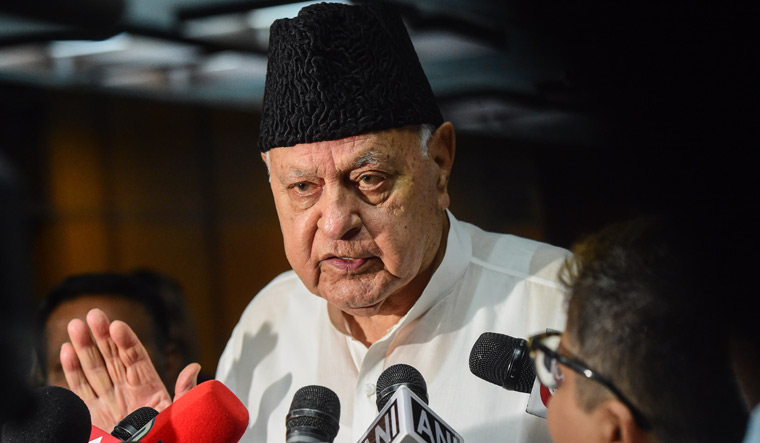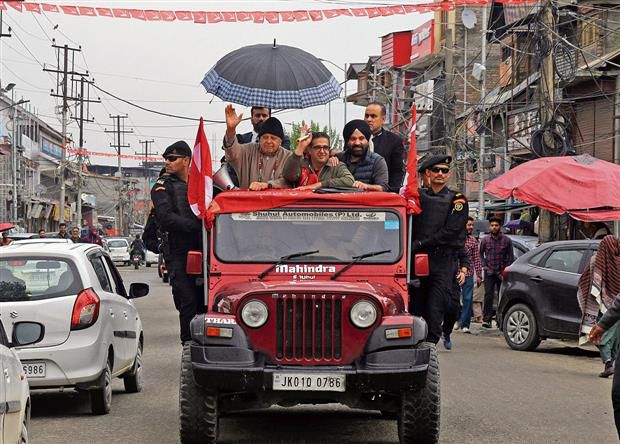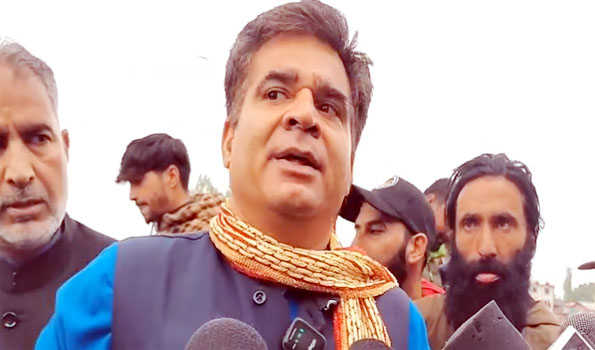When the petition challenging Article 35A comes up for hearing in the Supreme Court, the three-judge bench will take a call on whether the constitutional provision, which has withstood the test of the time, should be referred to a Constitution bench.
During the previous hearing on August 6, Chief Justice of India Deepak Mishra observed that Article 35A has been there since 1954.
“Article 35A didn’t come in the Constitution in a day. We cannot hear it in a day. This will be argued,” the CJI had said.
Senior advocate Zafar Shah said it continues to be an open question as to whether the apex court would refer the case to a larger bench.
He said on the next hearing, in the week commencing 27 August, the three-justices bench is required to consider the question as to whether the writ petitions make out any ground for referring the issues involved to the Constitution bench. If they are satisfied that the issues raised have already been settled by the court in previous decisions, the bench might not refer the cases to any higher bench.
In an affidavit filed in 2015, the J&K has already sought dismissal of the petition, reasoning the issue has already been settled by the apex court in its two earlier judgments.
“Much will depend upon nature of the issue projected before the court by parties concerned and implication of adjudication of such issues…on next date of hearing the court will test grounds stated by writ petitioners in their respective petitions after hearing all parties concerned. On that date the court may also decide fate of applications filed for intervention or for becoming parties,” said Shah who is part of a 14-member team of the Kashmir Bar Association that is also defending the Article.
Shah also referred to observations of the court that Article 35A has been in existence from 1954.
“The court also observed that the issue to be examined is whether Article 35A violates basic structure of the Constitution,” said Shah.
People in Kashmir and several other parts of state have been up in arms against any tinkering with the constitutional provision. Separatists, mainstream parties and trade and business organisation have vociferously sought protection of the Article.
Article 35A empowers J&K legislature to define permanent residents of the state. This provision was added to constitution through the Constitution (Application to Jammu and Kashmir) Order, 1954, issued by the country’s first president Rajendra Prasad on May 14, 1954, in exercise of the powers conferred by clause (1) of Article 370.
The J&K constitution, which was adopted on 17 November 1956, defined a permanent resident as a person who was born or settled in the state before May 14, 1954, or who has been a resident of the state for 10 years and has lawfully acquired immovable property in the state.
Former advocate general MI Qadri said the state subject law dates back to 1927 when Dogras from Jammu approached the then maharaja fearing that an influx of people from Punjab would lead to their domination in government services.
“These fears led to issuance of a separate notification by the maharaja in 1927 and 1932 which defined the state subjects,” said Qadri, adding that once the state constitution was framed in 1956, it retained maharaja’s definition of permanent residents and the privileges enjoyed by them exclusively in matters related to employment, acquisition of immovable property, settlements and scholarships.
In 2014, an NGO ‘We the Citizens, backed by right wing parties, filed a petition in the apex court seeking that the Article should be abrogated, arguing it was “unconstitutional” and approved without any debate in Parliament.
If the provision is done away with, J&K citizens will lose all exclusive privileges including state subject law, right to property, right to employment and right to settlement.
Though the previous government, in defence of the Article, had told the apex court the provision has become a permanent feature of the constitution, seeking the petition challenging it should be quashed , Attorney General KK Venugopal said union government wanted a “larger debate” on the “very sensitive issue” following which the court referred the matter to the three-judge bench.
New Delhi’s refusal to support state’s stand is being seen in J&K as part of a “larger design to breach J&K’s special position” as Article 35A bars non-state subjects from settling and buying property in the state.
A senior advocate who didn’t wish to be named said the case was at a preliminary stage in the apex court and may take a “long time to reach final conclusion”.
Former advocate general Jehnagir Iqbal Ganai said before deciding whether the matter has to be referred to constitution bench the apex court has to derive satisfaction that the case involves substantial question of law as to interpretation of the Constitution.
Only then, he said the matter can be referred to the Constitution bench.
The court has other option also, to dismiss the petition, Ganai said. He said if the court was of the view that no substantial question of law as to interpretation of Constitution was made, it can dismiss the petition.
On next hearing, SC will see whether to refer article 35A petitions to larger bench: Zafar Shah






